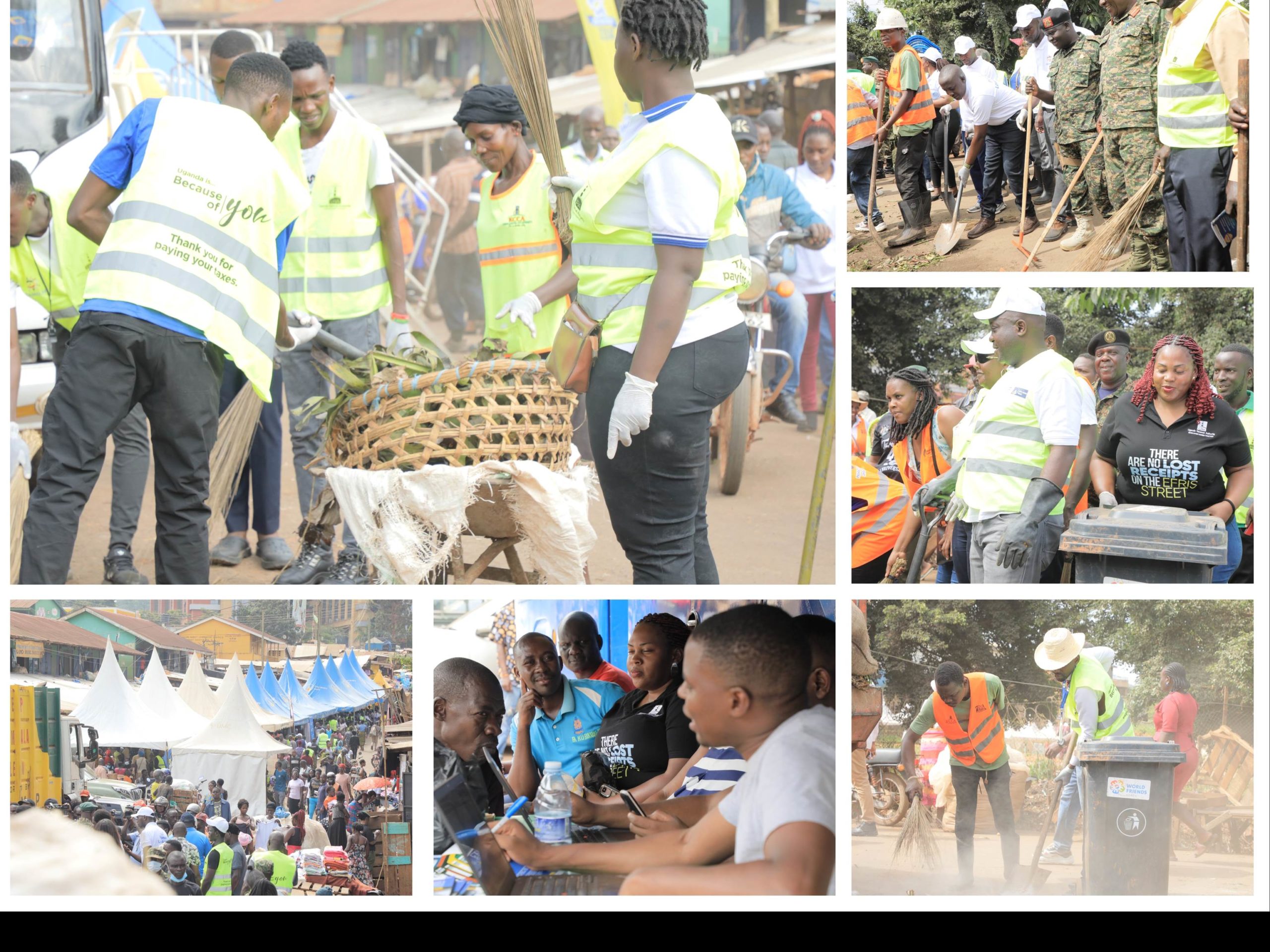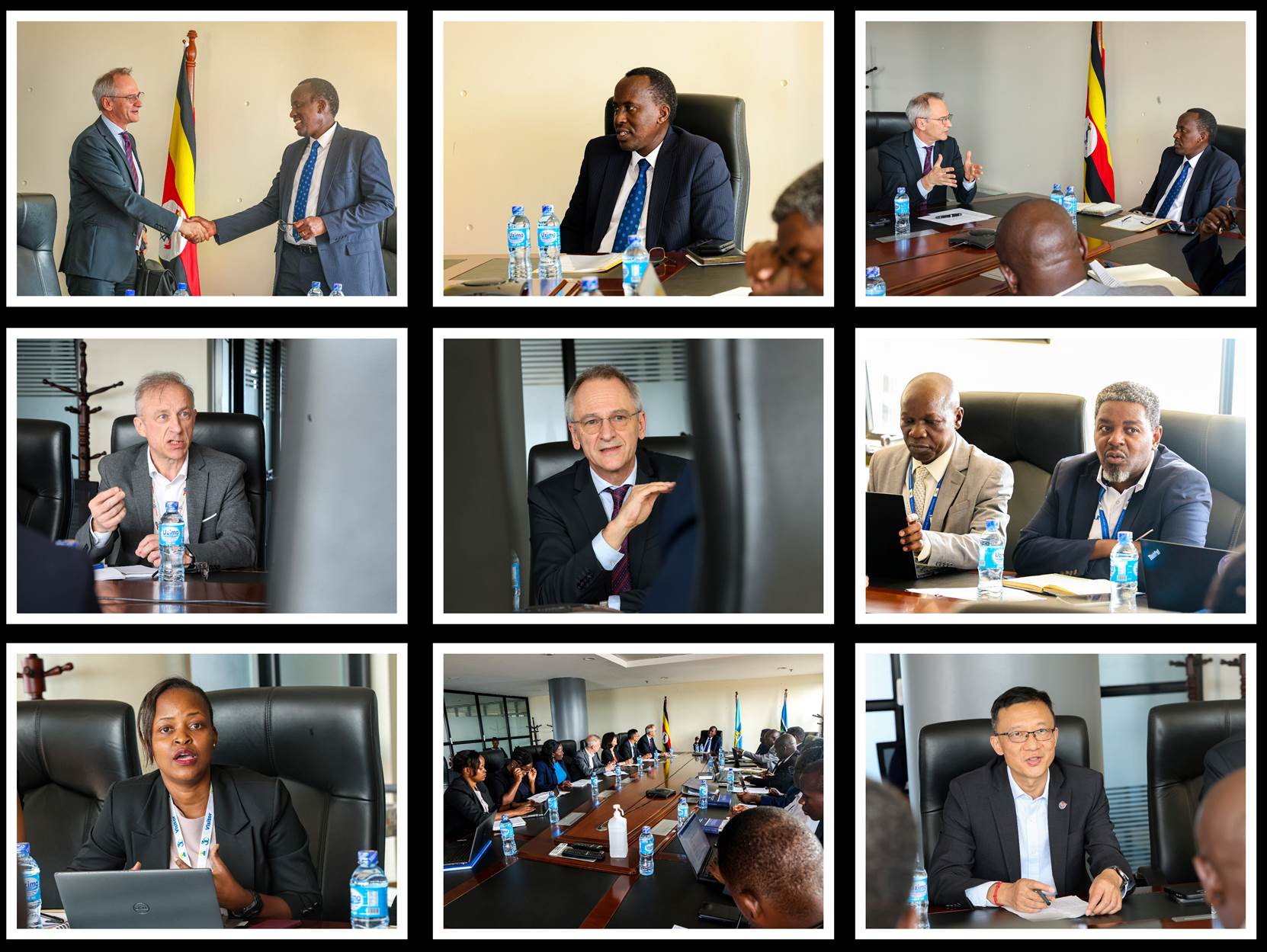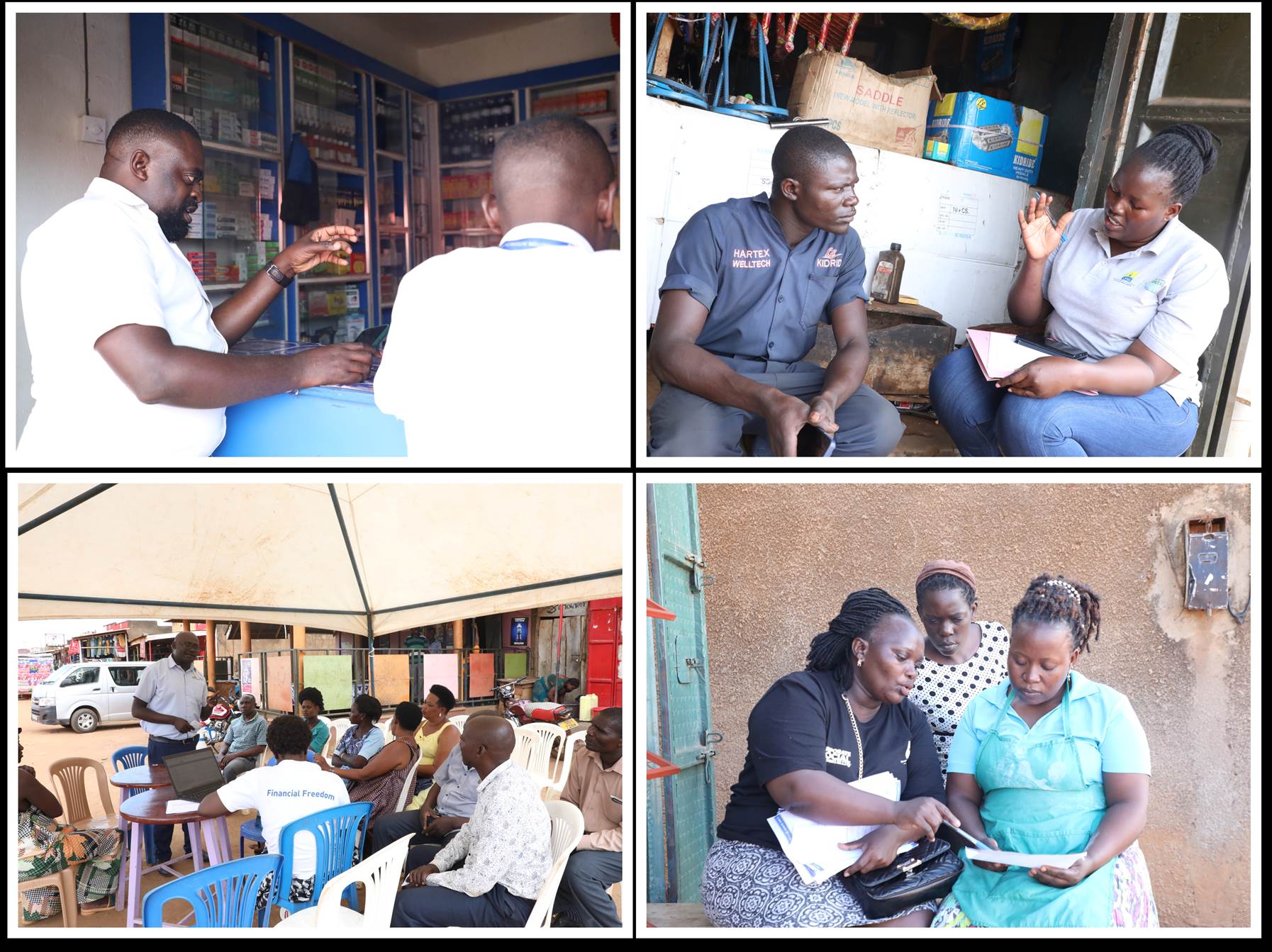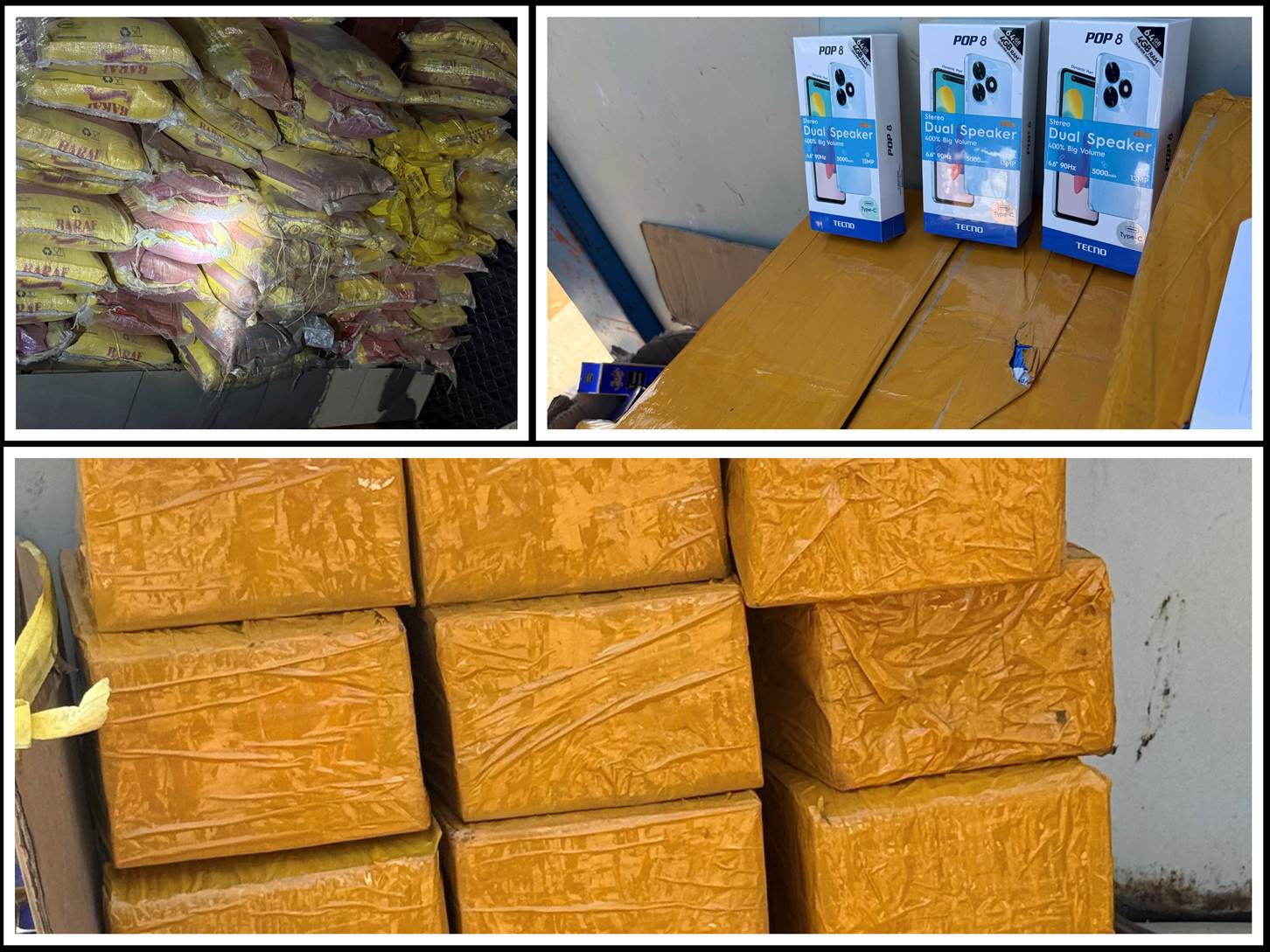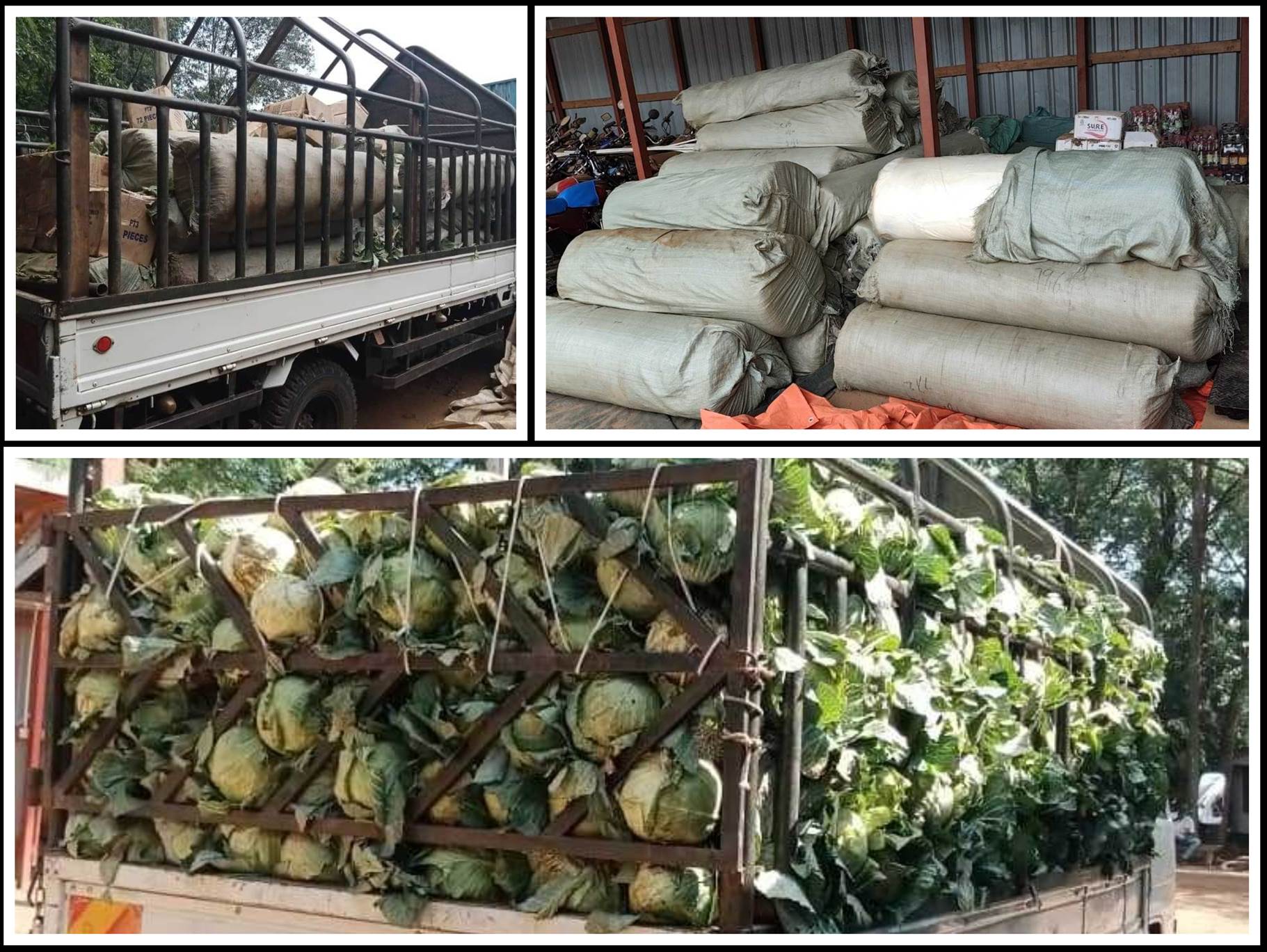By Dismas Nuwaine
Recently, URA in partnership with the Pamoja Peace and Love Foundation and other partners, engaged in the extensive cleaning of the Nakawa main market under the Green Guard Campaign
The team started by sweeping the main road that cuts through the market area and the hard-to-reach spots to remove loose dirt and dust. By midday, a mountain of trash had been collected; this was then whisked off by a trash car, groaning under the weight of its burden. At the end of the day, the market was transformed into a beacon of cleanliness and order.
Ibrahim Bbossa, the Assistant Commissioner for Public and Corporate Affairs at URA, said that this engagement was aimed at creating awareness about the devastating effects of environmental negligence on human consumption.
“We aimed to raise consciousness that people should begin to be mindful of how certain bi-products of what we consume, for example, plastics and kaveera, can actually impact the environment. Therefore, these should be properly disposed of,” said Bbossa.
Bbosa also noted that such engagements enable URA to have meaningful and intentional discussions with the tax-paying community on matters that affect them.
“Such engagements in the communities enable us to network with the people we serve,” said Bbossa, before he added, “They help us to have honest conversations, not just within our business portfolio but also on other matters that affect the common man, and environmental conservation is that matter of public interest.”
A vegetable trader who desired to be anonymous thanked the revenue body and her partners for the work well done in the market.
“I am extremely thankful to URA and the whole team for this kind gesture. The trash had piled up big time, and the smell made our customers look very uncomfortable. We are deeply grateful,” she said.
The Green Guard Campaign, which started in July of last year, is geared towards creating awareness about environmental protection and the mitigation of risk factors to environmental conservation within the taxpaying community.
According to Bbossa, the campaign is in line with the worldwide cry to conserve the environment. He says URA has, for the most part, walked this talk, partnering with several like-minded organizations to achieve this mandate.
Last year, the team organized a “Tree for a Hand” campaign, where they partnered with Fair Ventures Worldwide, a non-profit organization based in Stuttgart, Germany, that combines forestry and modern technologies to reforest degraded areas in the tropics, to provide over 1000 tree seedlings to taxpayers.
Bbossa notes that the revenue body has a wide reach on social media, and it has leveraged this to tailor messages that inform the public to take environmental conservation seriously.
Next on the agenda is an environment symposium, where the team plans to bring together students and policymakers to discuss prospective mitigation measures to curb emissions and degradation.


